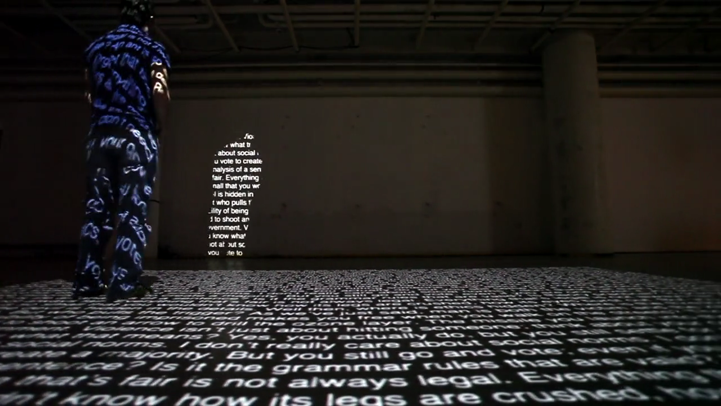Digital Storytelling
Digital Storytelling – RHE 330C
DESCRIPTION
While storytellers have composed narratives (historical, informative, persuasive, and/or reflective) through oral and print-based media for centuries, emerging digital media allows for an ever-increasing array of possibilities to develop and share the narratives that matter to our communities and to our lives. Using text, audio, visual, and video in concert with thorough research and narrative composition, this course will introduce students to and provide repeated practice in using digital media for composing compelling digital stories.
In addition to composing with digital media, students will be introduced to research sites that may include the university libraries, community centers, state museums, and many other sites available for further independent exploration. In conversation with our readings, discussions, and the students’ own researched topics, the course assignments and projects will entail learning to compose with digital media by researching and developing short narratives, culminating in a semester-long, digital story.
Note: While no prior experience with digital media is needed, a willingness to learn is required. Toward these ends, the course will be organized as a project-based workshop (especially in the second half of the semester) and will require substantial work on the students’ parts to research and develop material to be used for composing the digital stories. In addition to readings and discussions, several of our class meetings will be opportunities for hands-on practice with digital composing tools that will involve your classmates and the instructor. Please be advised that such work requires regular attendance, diligent preparation, and active participation.
REQUIRED MATERIALS
All readings and texts will be made available through Canvas (students will be responsible for printing out applicable readings).
All students will be required to subscribe to Adobe Creative Cloud for the duration of the semester.
PROJECTS
All assignments will have a full assignment sheet detailing the expectations and process for successful completion.
Reading Responses – 10%
Multiple written responses to required readings posted to our course site (300-500 words posted in Canvas). Responses will be opportunities to critically and creatively engage course readings and case studies as well as provide the starting point for much our class discussion.
Story Proposal and Research Plan – 10% | Due: 2.8
2-3 page proposal that identifies a story of interest, locates relevant material for independent research, and outlines a production strategy for composing the semester-long digital story.
Image Story – 10% | Due: 2.22
This assignment serves to introduce image manipulation software by composing a short, image-based story.
Sonic Story – 15% | Due: 3.8
Students will record, edit, and share a short (1-2 min) audio narrative.
Video Story – 20% | Due: 3.29
Students will produce a concise (60 seconds) video story.
Digital Story – 35% | Due: 5.10
The final project builds on the previous smaller assignments, culminating into a substantial Digital Story. Each digital story will be based on students’ independent research and will also vary in form (media and its delivery) depending on each individual student’s chosen material. Final project will also include a presentation during the last week of class.
[Course Policies available on course Canvas site or by request]
Schedule (subject to change, often)
Week One: Introductions
1.18: Course Orientation
Michael Wesch Unboxing Stories
Scott Dadich on Wired and Multi-platform Stories
Week Two: Narrative
1.23: Daniel Dennett, “The Self as a Center of Narrative Gravity”
1.25: Randy Olson, “Why Science Needs a Story” & Bruner, “Narrative Knowledge”
Assign: Story Proposal and Research Plan
Week Three: On Digital Narrative
1.30: Hayles, “Electronic Literature, What is it?”
In-Class: Lost and Found
IDEO: Future of the Book
2.1: Bruno Latour, “Sensitizing”
Electronic Literature Collection (Choose one text for reading and be ready to discuss in class)
Data Collection & Management
In-class: The Panama Papers
Week Four: Telling Images
2.6: Intro to Photoshop (Assign: Image Story)
In-Class: A Softer World
2.8: Wim Wenders, “Impossible Stories”
Vito Campanelli, “The Fluid Principles of Contemporary Images”
In-Class: Dear Photograph; Erik Johansson & his TED Talk; Surreal Mashups
Week Five: Telling Images
2.13: Mark Ritchin, “Making Pictures Matter” & “The Useful Photographer”
In-class: Humans of New York, and Cowbird; & Hello Lamp Post
Due: Story Proposal and Research Plan
2.15: Trevor Paglin, “Is Photography Over? (Blogpost Series: “Is Photography Over?”; “Seeing Machines“; “Scripts“; “Geographies of Photography“)
In-Class: Josh Begley, “Best of Luck with The Wall”
Week Six: Sounding Stories
2.20: Adobe Audition Introduction (Assign: Sonic Story)
2.22: Tim Ingold, Naming as Storytelling
Due: Image Story
Week Seven: Resounding Stories
2.27: HowSound, Story Structure: The ‘e’
3.1: Thomas M Alexander, “The Moral Imagination and the Aesthetics of Human Existence”
Radiolab, Making the Hippo Dance
On the Media, “Pulling Back the Curtain”
Rob Rosenthal, “Tinkering with Sound Design“
Week Eight: Stories that Move
3.6: Introduction to Adobe Premiere (Assign Video Story)
3.8: Video Workshop
Jens Erik Paulson, “A Narrative Ethics of Care”
Due: Sonic Story
SPRING BREAK – 3.13-3.17
Week Nine: Moving Stories
3.20: Guido Ferraro, “On Growth and Form of Narrative Structures”
3.22: Jerome Bruner, “Life as Narrative”
Week Ten: Designing Story Space
3.27: Ursula LeGuin, The Carrier Bag Theory of Fiction
3.29: Mark Pilgrim, Dive into HTML5; Atavist, WordPress, Drupal, and other open, CMS exploration
Due: Video Story
Week Eleven: Circulating Stories
4.3: Henry Jenkins, “Introduction to Spreadable Media” and “Designing for Spreadability”
4.5: Eunsong Kim, “The Politics of Trending”
Week Twelve: Presenting Stories
4.10: Scripts
Reading TBD
4.12: Slides
Reading TBD
Week Thirteen: Project Workshops
4.17: Workshop
4.19: Workshop
Week Fourteen: Project Workshops
4.24: Workshop
4.26: Workshop
Week Fifteen: Project Presentations
5.1: Presentations
5.3: Presentations


